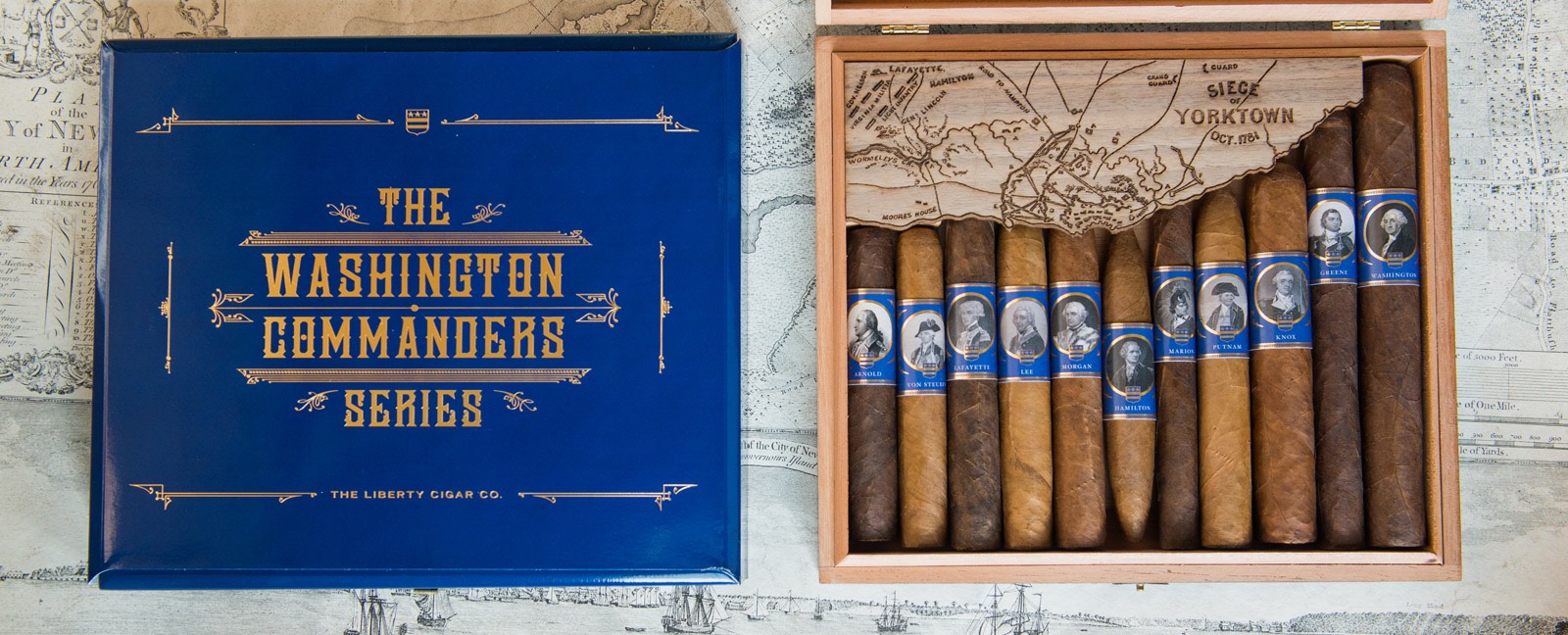Benedict Arnold
Individual Cigar
$11Add to cart
Vitola
Robusto
Size
50 x 5
Body
Full
Wrapper
Maduro-Brazil
Binder
Honduras
Filler
Cuban Seed Ligero
Nicaragua / Santo
Domingo / Habano
General Benedict Arnold
Judas Iscariot, Marcus Junius Brutus, Vidkun Quisling, and Benedict Arnold are members of a small club of scoundrels whose names still evoke disgust and other negative emotional reactions. In the case of Arnold, however, he had achieved notoriety as a national hero through his faithful service and competent generalship in the American War for Independence. Respected by General Washington and admired by his troops, Arnold, a successful merchant and possible smuggler possessed no political clout in Congress. Personal vanity, greed, and a beautiful woman helped make his name a byword for treason.
Connecticut-born Benedict Arnold apprenticed to a druggist at the age of fourteen but ran off and enlisted in a militia company, from which he promptly deserted. His pious and domineering mother got him home again after which he ran off, enlisted in another unit, and deserted. He finally finished his apprenticeship and opened a drugs and books shop in New Haven. He married, had three sons in five years and built up a successful trade with the West Indies. “Tremendously energetic and restless,” he was elected captain of a militia company and joined the Massachusetts rebels around Boston in 1775.
With a Colonel’s commission from Massachusetts, Arnold and Ethan Allen embarked on a bold scheme to capture Fort Ticonderoga, one of the great successful feats of the early war. The escapade established his reputation and led to larger assignments, including an ill-fated invasion of Canada. One military historian described the first part of Arnold’s career: “As a soldier he was original and audacious, quick in forming plans, quick in putting them into vigorous execution. He led his soldiers, not drove them, and won and held the devotion of the rank and file. He had a gift for command.” He was also “restive and arrogant,” and cared too much for preferment, protocol, and advancement and thus did not do well under men he considered his inferior.
General Benedict Arnold’s greatest moment came in the Battle of Saratoga, which in some ways, made all the difference in the direction of the War for Independence. With the American commanding General, Gates, so far back he couldn’t smell the powder, (though he would get full credit for the victory), Arnold led the attacks against the British lines. Galloping back and forth, leading different forces against the redcoat redoubts and defenses, he drove them back and decisively defeated General John Burgoynes’s army. Arnold himself was wounded but refused to leave the field till all was won. Next to the final Siege of Yorktown, it was the greatest American victory of the war and destroyed England’s attempt to divide the colonies and remove New York from the strategic board.
Congress rewarded Gates and all but ignored Arnold. As he recovered from his wounds and reflected on the perceived snubs he also fell in love, after his wife died, with the nineteen year old, vivacious and beautiful, Peggy Shipton of Philadelphia. Her Tory convictions and supportive family, it is assumed by historians, played some role in Arnold’s treachery. Upon his recovery, Washington appointed General Arnold to the bastion of West Point on the Hudson, a powerful strategic position. Arnold sold out to the British and arranged to turn the fort over to them in return for money, position, and respect. In the event, the plot was providentially revealed, British spy John Andre’ was hanged and Arnold went over to the enemy.
The British gave him the rank and money but not the respect. Who could trust him now? Arnold fought against his former friends in Virginia but escaped capture when Cornwallis surrendered. A monument to him at Saratoga carries only his boot where he took a bullet for independence and glory. His post-war career in England brought him no pleasure and he died unsung by either side. Some of his descendants fought in British armies of the future, sometimes dieing on the remote hills of the empire, perhaps thinking an unredeemable name could be rescued from history.

